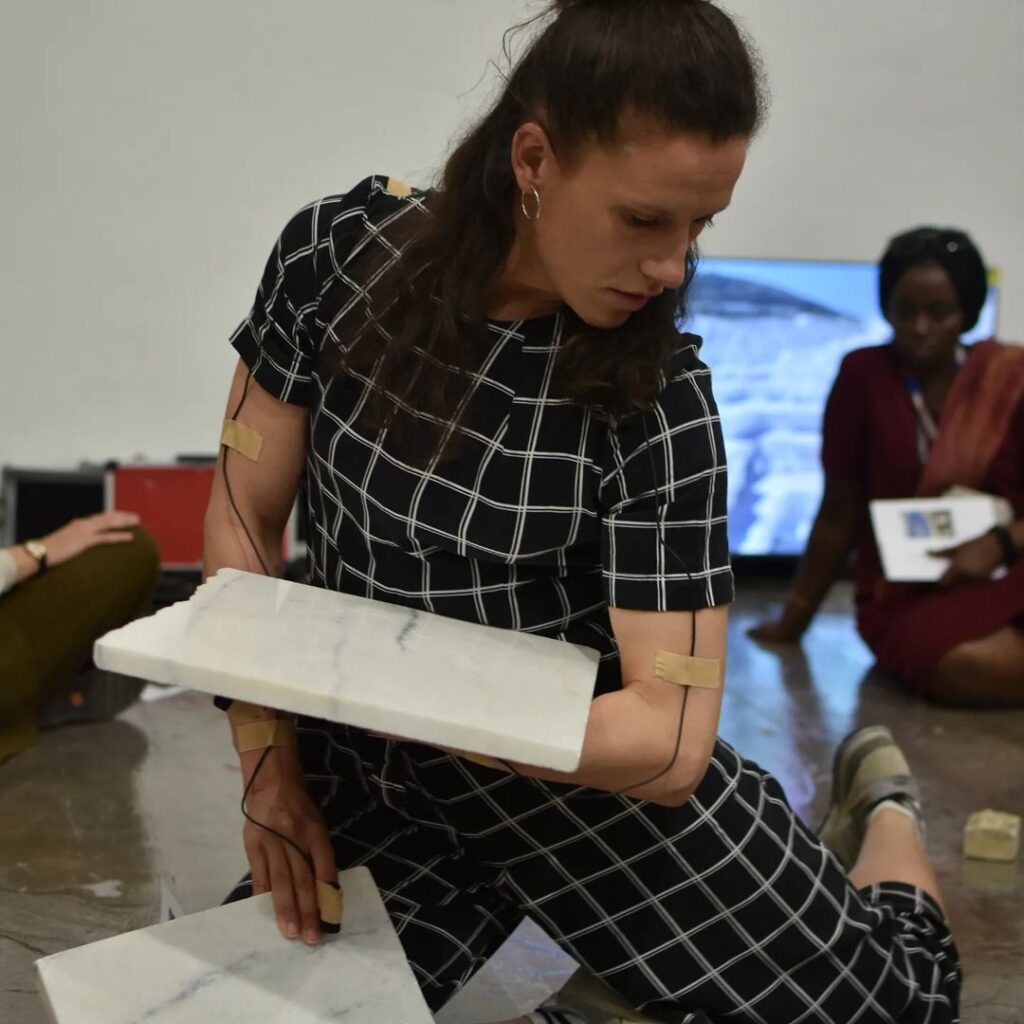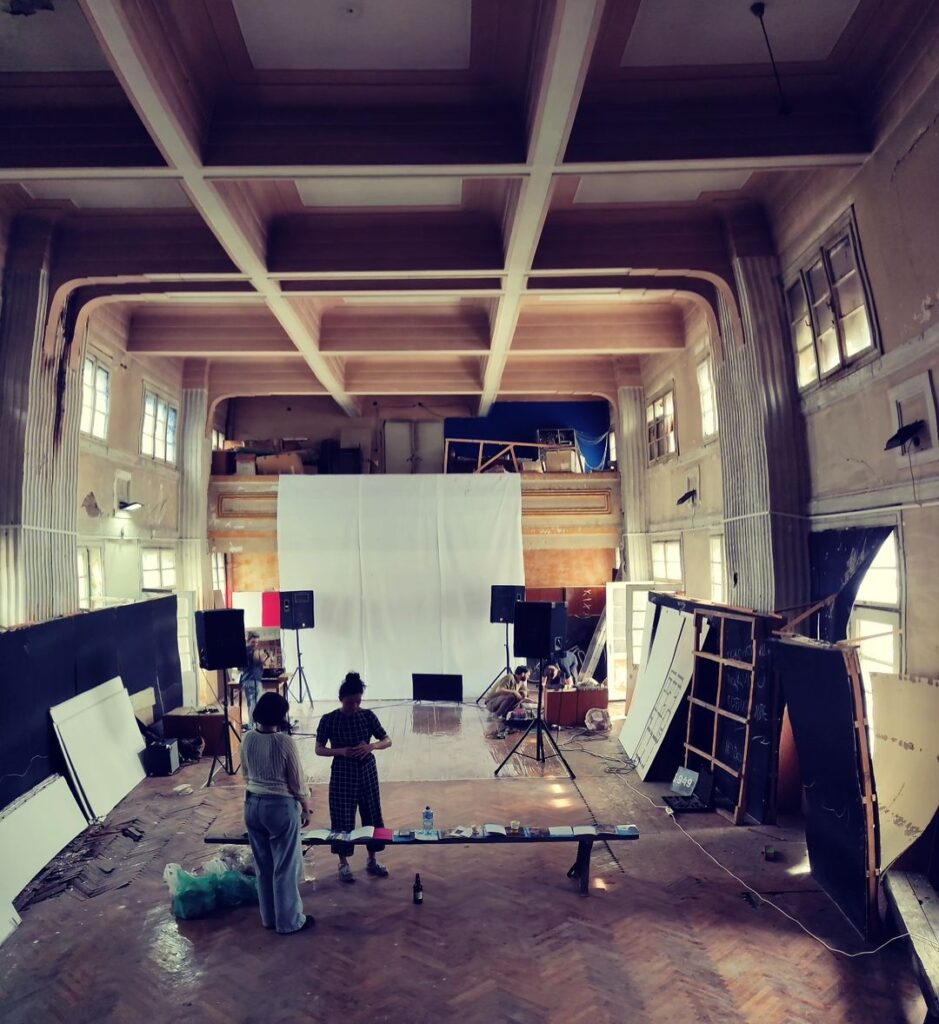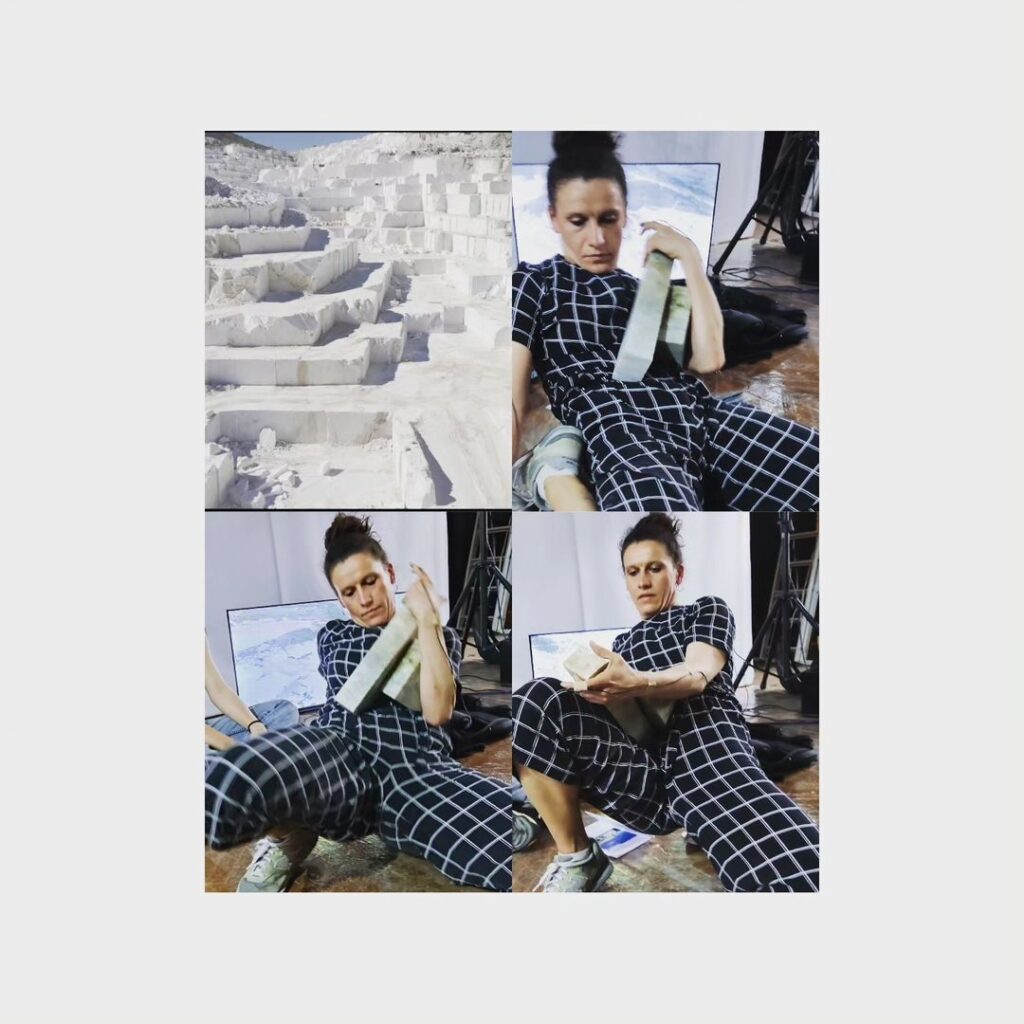CITY AS A STAGE - LOST (MODERNISTIC) UTOPIAS
The buildings of the Army House and the Albanian Theatre for Children and Youth in Skopje, the local marble production from Prilep and the violence of the sounds created in/between these places present a platform that (re)invents the city from the peripatetic experience and embodiment of the decolonising flâneuse who uses the body as a site of learning, caring and participation.
The traces of the modernist utopia of a new Skopje, imagined after the devastating earthquake of 1963, are still dwelling in the city, many of them abandoned, privatised or erased, as “antic” ruins left in our urban and cultural landscape. The city, rebuilt with the help of the Yugoslav and world solidarity funds, was conceived as a city of internationalism, reflecting the general politics of Yugoslavia at the time – anti-fascist, anti-colonial, anti-imperialist and non-aligned. Skopje became a stage for world modernist brutalist architecture, among other things, and an enormous amount of knowledge entered the city, shaping and emancipating its cultural identity for a long time.
The platform City as a Stage aims to learn from the city as a resource, from the traces of abandoned solidarity, and through engagement with local people, to rethink the idea of how transnational solidarity can reshape the city. How can the – seemingly lost – city be reconstructed through sound, movement, accessibility and legal rights? To whom does this city belong? The figure of the flâneuse appears on stage to invite us not to be passive observers or wanderers in the modern city, but engaged doers in the late capitalist city, and to move from a self-conscious awareness of the urban experience to a caretaking and caregiving asset in the re-politicisation of the common.
Through the works of the artists Alembic (Viktor Tanaskovski and Iva Damjanovski), Besfort Idrizi, Viktorija Ilioska and Anastasija Pandilovska, curated in a joint platform by Ivana Vaseva and Filip Jovanovski, and using their method of “reading buildings”, this project uses the city as a text for re-reading historical events, evoking the (tectonic) shifts, clashes and (self-)exploitations in the contrast of local official and unofficial histories. The buildings of the Army House and the Albanian Theatre for Children and Youth in Skopje, the local marble production from Prilep, and the violence of the sounds created in/between these places introduce a platform that (re)invents the city from the peripatetic experience and embodiment of the decolonising flâneuse who uses the body as a site of learning, caring and participation.
Take on the role of the flâneuse.
Curators: Ivana Vaseva and Filip Jovanovski
Creative team:
Commissioner: Ruse Arsov
Artists: Alembic (Viktor Tanaskovski and Iva Damjanovski), Besfort Idrizi, Viktorija Ilioska and Anastasija Pandilovska
Production team: Blagica Petrova and Ivana Samandova
Organization: Organization for arts and culture Faculty of things that can’t be learned – FRU in partnership with Youth Cultural Center – Skopje, International Theater Festival MOT


